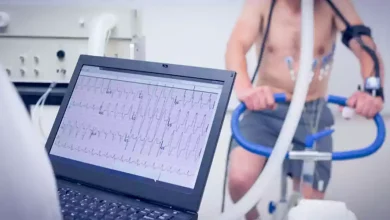The Worrying Symptoms That Indicate Extremely Severe Vitamin B12 Deficiency

Do you suspect that you may have a B12 deficiency? Here are some symptoms to watch out for.
Vitamin B12 is crucial for maintaining normal brain and skeletal system function. It is, nevertheless, a vitamin that is frequently overlooked. Over 15% of the world’s population is deficient in Vitamin B12, while a shocking 40%+ are borderline deficient, according to statistics.
Groups who are most likely to be deficient in vitamin B12
Vegetarians and vegans may be at a greater risk of acquiring a Vitamin B12 deficiency than non-vegetarians since so few plant-based sources contain this vitamin.
Gut issues are another doorway via which the deficit may quickly enter the body. The potent vitamin may be poorly absorbed due to chronic inflammation in the stomach and other digestive difficulties, which appear to be more frequent in women than in males. Different groups may be at increased risk for flare-ups and persistent symptoms, including the elderly, metformin-using diabetics, patients recovering from surgery, and those who regularly use antacids.
While it is critical to have a nutrient-rich diet, it is equally crucial to recognise the symptoms of a deficit and address them promptly:
Changes In The Tongue’s Texture
Are you looking for a critical indicator of deficiency in vitamin B12 intake? Feel the texture of your tongue. A lack of vitamin B12 can cause the loss of papillae, the bumps that act as taste buds on the tongue’s surface. If this occurs, you may have a painful tongue, notice a shift in your taste perception, or find it harder to differentiate between flavours.
Swelling and inflammation of the tongue are further symptoms of severe deficiencies. Other oral symptoms, such as mouth ulcers, prickling sensations, and burning, are also possible.
A tingling, prickling, or a pins-and-needles feeling
Vitamin B12’s role in regulating nerve activity and helping to produce RBCs is crucial. Damage to nerve cells and subsequent nervous system problems have been linked to low vitamin B12. As a result, a painful tingling or numbness may spread throughout the limbs and arms. The body’s sense of balance and coordination is in danger, leading to dizziness, unsteady, fatigue-like symptoms, and even falls if the spinal cord’s critical nerves are jolted.
Memory loss and difficulty remembering are typical signs
An increasing number of people are suffering from Vitamin B12 insufficiency, and one of its symptoms is memory loss and confusion, which can be mistaken for other mental health issues. Vitamin B12 is essential for proper nerve activity; thus, a deficit can severely affect brain health and function. Memory loss, confusion, and disorientation are just some issues that can arise if the brain’s nerves are injured or otherwise compromised. There is also speculation that patients with a severe deficit can experience anxiety and confusion since their symptoms resemble dementia.
A state of extreme anxiety and depression
A severe deficiency in vitamin B12 can cause emotional instability, temper tantrums, and even despair and anxiety. Dopamine and serotonin are two examples of vital neurotransmitter molecules thought to be controlled by vitamin B12 levels in the brain. As a result, it is recommended to seek medical attention if you feel stress without apparent triggers.
Raised heart rate and trouble breathing
Problems with your heart rate have been linked to deficiencies. Due to the lack of red blood cells (RBCs), the heart needs to work more and beat quicker to compensate. When oxygen levels drop, the body increases its heart rate and breathes rapidly to bring more oxygen to the tissues and organs that need it. Because of this, you may also find it difficult to breathe.




